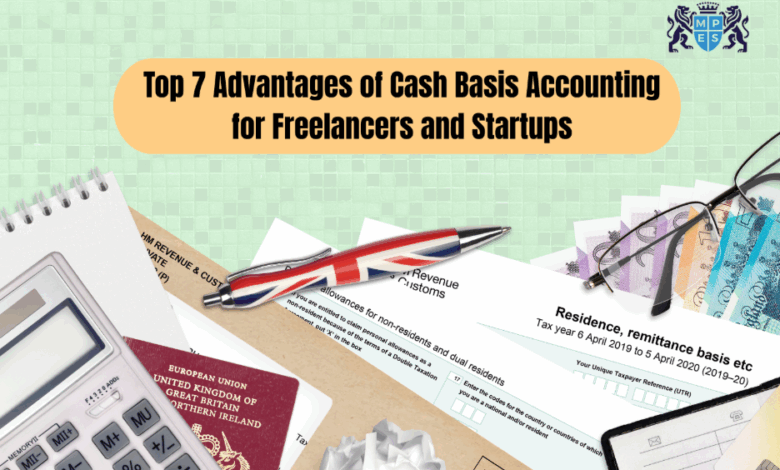
Have you ever felt overwhelmed trying to manage your income and expenses as a freelancer or startup owner? You are not alone. Many people, beginning with Recording Financial Transactions (FA1), find traditional accounting methods too complex. That is why Cash Basis Accounting has become a favourite among small businesses. It focuses on tracking money only when it is received or spent, making it a simple and practical approach.
Let us explore how this method can make handling your finances easier and less time-consuming.
-
Easier to Understand from Day One
Cash-based accounting doesn’t require familiarity with accounting. Once you receive payment, it tracks your income and when you pay your bills. That’s it. This simple method saves time and stress for freelancers who handle their own money or for new businesses that don’t have a finance team.
You don’t have to keep track of unpaid bills or worry about them. It’s easy; just follow the money.
-
Real-Time View of Cash Flow
Keeping track of cash is one of the most challenging tasks for any new business. When you use cash basis accounting, you can see your money right now. Because only real payments are logged, you can see exactly how much cash you have on hand.
This means you can make better choices. You won’t have to wait for payments to clear before you decide to buy new software, hire help, or take on a new client.
-
Fewer Accounting Adjustments
With accrual accounting, you must match income and costs with the times they occur. With cash basis accounting, you don’t have to make most of these changes. You don’t have to deal with accruals or prepayments. That makes the process of keeping the books every month easier and cleaner.
This also means fewer mistakes. You are less likely to make mistakes if you don’t have to make many changes.
-
Tax Simplicity and Possible Savings
In some places, companies that use cash-based accounting only have to pay taxes on the money they have actually received. This could mean less tax for freelancers, especially if clients take a long time to pay.
This method also makes it easier to keep accurate records for tax purposes. You report to the government how much money came into and went out of your account during tax time.
-
Cost-Effective for New Businesses
When you are just starting, you might not be able to afford to hire accountants or buy pricey accounting tools. Simple worksheets or free tools can be used to do cash basis accounting. With this cost-effective setting, you can allocate your resources towards growth instead of administration.
As your business grows, you can transition to more advanced methods.
-
Perfect for Solopreneurs and Small Teams
Cash-based accounting is suitable for businesses of all sizes, ranging from a single person to a small group of individuals. You don’t have to work with other teams or keep track of transactions between companies. It’s easy for one person to handle everything.
It’s also great if your pay changes often or with the seasons. Many freelancers say it helps them stay stable and in charge.
-
Smoother Start for Accounting Education
If you want to study business finance or accounting, learning cash-basis accounting first is a good idea. It is clearly connected to what is taught in Recording Financial Transactions (FA1). You learn how to track real transactions, which makes it easier to learn more advanced concepts later on.
This approach helps you feel more sure about managing your personal and business finances.
Conclusion
For anyone just starting, managing your finances doesn’t need to be complicated. Cash basis accounting is easy to use and designed for individuals who need to focus on their work. It also aligns naturally with early concepts from Recording Financial Transactions (FA1). If you are looking to deepen your understanding of accounting basics and grow your skills, MPES Learning offers structured support to help you move forward with confidence.

